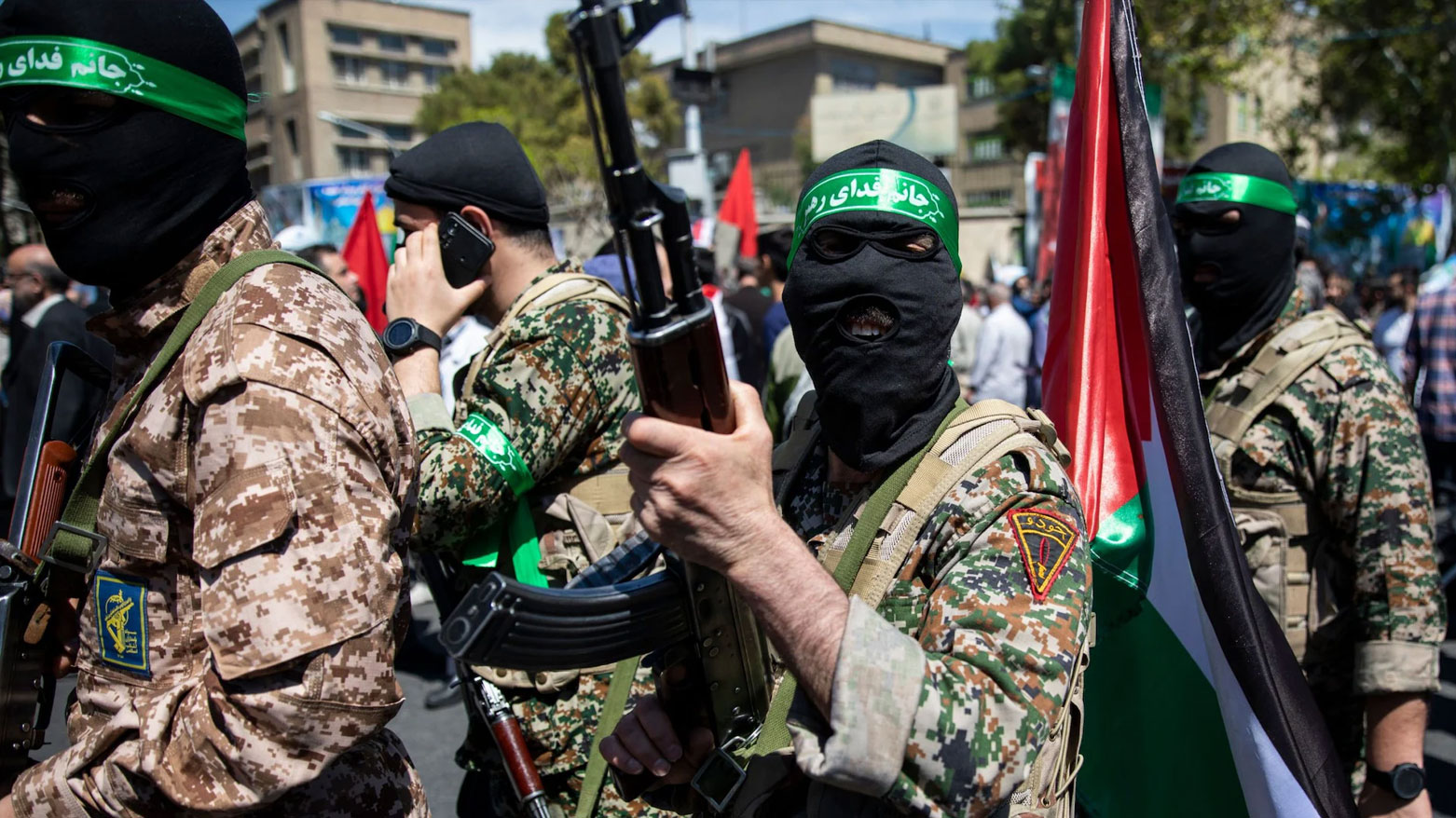Australia Designates Iran’s Revolutionary Guard Corps as a Terrorist Organization
Australia's Parliament passed legislation designating Iran's IRGC as a terrorist organization, following intelligence linking the IRGC to antisemitic attacks in Melbourne and Sydney. The move comes two months after Australia expelled Iran's ambassador and suspended diplomatic operations.

ERBIL (Kurdistan24) – Australia’s Parliament has passed legislation authorizing the government to designate Iran’s Islamic Revolutionary Guard Corps (IRGC) as a terrorist organization, deepening diplomatic tensions with Tehran following months of escalating confrontation.
On Thursday, Australia’s House of Representatives voted in favor of the “Counter-Terrorism (Protection of the Nation) Bill 2025”, granting the federal government the authority to formally list the IRGC as a terrorist group under Australian law.
According to Iranian state media IRNA, the vote was described as a “hostile act based on unfounded accusations,” but Australian lawmakers said the decision was guided by clear evidence of IRGC-linked activities on Australian soil.
The legislation, introduced by Australia’s Labor Party, followed intelligence revelations about the IRGC’s role in two antisemitic attacks earlier this year — an attempted arson at the Adass Israel Synagogue in Melbourne and an attack on Lewis’ Continental Kitchen, a Jewish-owned business in Sydney.
“These actions are designed to protect the safety and security of all Australians,” Attorney-General Michelle Rowland said in a statement after the vote. “Our government’s foremost duty is to ensure public safety, and based on indisputable evidence, we have taken this step decisively.”
Rowland emphasized that the new law sends a message to all countries or groups that seek to create “fear, division, and social unrest” in Australian society. “This legislation prevents such hostile acts and delivers a firm response to those who enable or support them,” she said.
The parliamentary move comes just over two months after the Albanese government expelled Iran’s ambassador, Ahmad Sadeghi, and suspended Australia’s diplomatic operations in Tehran. The expulsion followed a domestic intelligence report linking the IRGC to orchestrated antisemitic attacks in Australia.
At the time, Prime Minister Anthony Albanese called the incidents “extraordinary and dangerous acts of aggression” carried out by a foreign state, adding that “Iran’s actions sought to undermine social cohesion and threaten the safety of our citizens.”
The decision to expel Iran’s envoy — the first such expulsion in Australia since World War II — marked a turning point in bilateral relations, effectively freezing diplomatic contact between Canberra and Tehran.
The Counter-Terrorism Bill 2025 was introduced in parliament by the Labor government with cross-party support, allowing for swift passage through both chambers. Lawmakers cited the findings of the Australian Security and Intelligence Organization (ASIO), which concluded that the IRGC had coordinated the Melbourne and Sydney attacks through a “network of paid intermediaries” operating within Australia.
ASIO Director-General Mike Burgess described the operation as a “layered system of cut-outs” linking back to Tehran. “These were calculated and deliberate acts of intimidation and violence orchestrated by a foreign nation,” he said at a press briefing in August.
Under the new law, Australian authorities can freeze IRGC-linked assets, ban financial transactions, and prosecute individuals or organizations providing material support to the group.
Australia’s move aligns it with the United States, which designated the IRGC as a terrorist organization in 2019, and with several European allies that have debated similar measures. The United Kingdom, Germany, and Canada have also condemned Iran for directing or financing attacks on foreign soil.
The IRGC has been widely accused of supporting armed groups across the Middle East, conducting cyberattacks against Western targets, and coordinating extraterritorial operations — including plots to assassinate dissidents and opponents abroad.
In a statement to parliament, Foreign Minister Penny Wong said the decision “reflects Australia’s commitment to international peace and to the protection of its citizens from state-sponsored extremism.”
Tehran has condemned Canberra’s actions, calling them “politically motivated” and warning of “consequences for bilateral relations.”
Australia and Iran have maintained diplomatic relations since 1968, but ties have often fluctuated between cautious engagement and open criticism. Relations hit a new low after the 1979 Islamic Revolution, and have since deteriorated over issues including Iran’s nuclear program, regional interference, and human rights record.
With the expulsion of the Iranian ambassador and the IRGC’s formal listing as a terrorist entity, bilateral relations are now at their lowest point in history.
For Prime Minister Albanese, the move bolsters his government’s national security credentials and demonstrates alignment with Western allies in confronting foreign-directed extremism.
“This legislation is not just about one organization,” Albanese said. “It is about standing up to those who threaten our democracy, our unity, and the safety of Australians.”
Australia’s designation of Iran’s Islamic Revolutionary Guard Corps as a terrorist organization marks a decisive break in relations between Canberra and Tehran and underscores a broader global shift toward confronting Iranian state-linked aggression.
While Iran has denounced the decision, Australian officials maintain that it was driven solely by national security and the protection of social harmony. The step places Australia firmly alongside its Western allies in opposing what it describes as “foreign-directed terrorism and interference” on its soil — a position likely to redefine its foreign policy posture toward the Middle East for years to come.